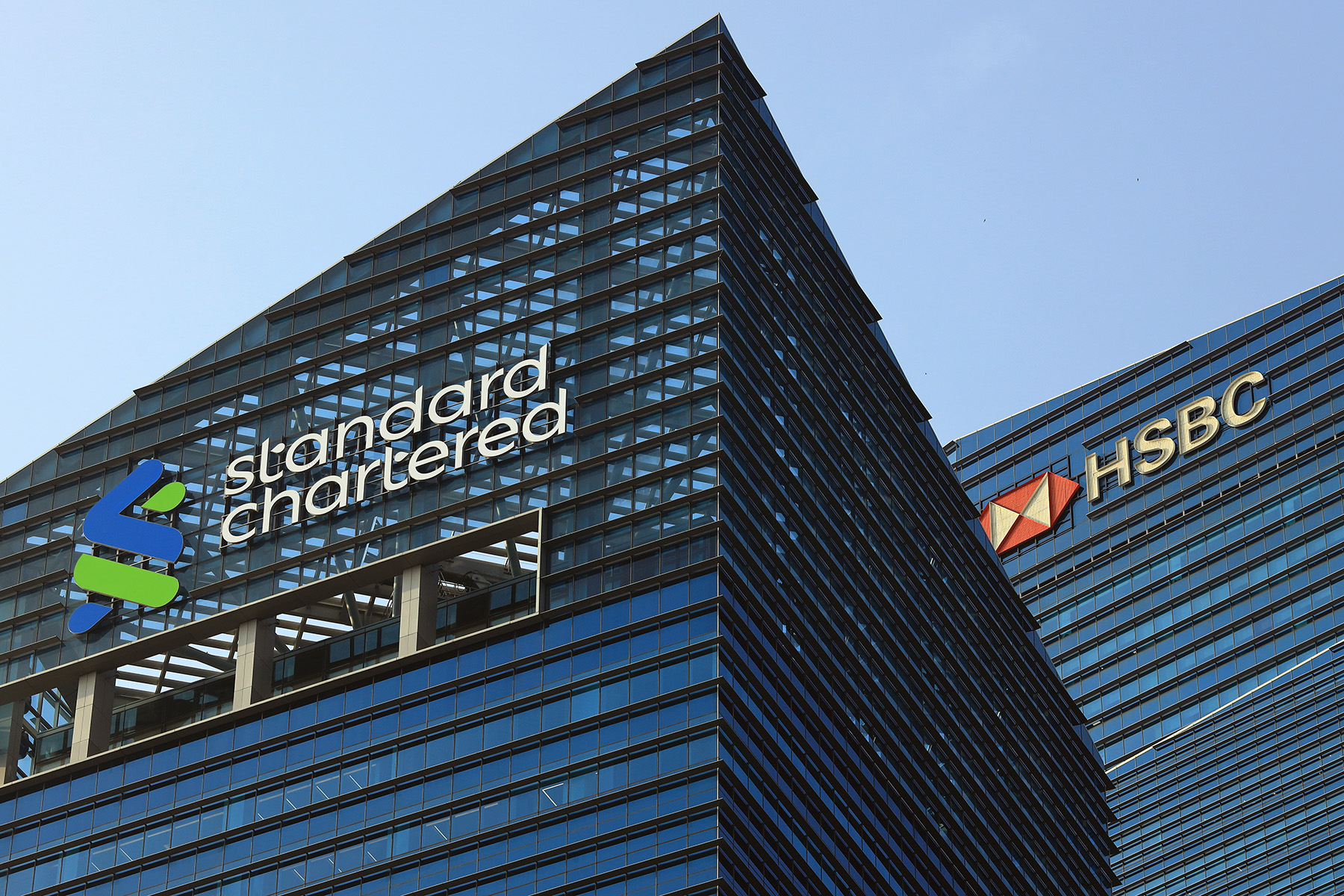Singapore boasts one of the world’s freest and most innovative economies. With a quick and straightforward business registration process, low tax rates, and 100% foreign ownership permitted, it’s no wonder Singapore attracts so much expat-driven business. Further, the government offers attractive investment incentives, regulation is light, and it is all supported by a sophisticated banking system.
Read on for more about starting a business in Singapore, including:
- Singapore business culture
- Legal business structures in Singapore
- Who can start a business in Singapore?
- Starting an online business in Singapore
- Starting a non-profit company in Singapore
- Managing a Singapore business
- Support and advice when starting up a business in Singapore
- Corporate social responsibility (CSR) culture in Singapore
- Useful resources
Singapore business culture
Singapore’s business culture is hard-working and dynamic, making it a very attractive start-up environment for entrepreneurs worldwide.
As of early 2024, start-ups and small and medium-sized enterprises (SMEs) account for a significant share of the half million-plus companies registered in the country. They also generate an increasingly significant share of total economic output.

Singapore is an exceptionally dynamic economy, ranking an impressive 5th in the world for innovation. Low taxes (a flat 17%) also make it a magnet for businesses in the following sectors:
- Banking
- Insurance
- Financial services
- Shipping and logistics
- Manufacturing
- Construction
- Hospitality
With thousands of foreign-owned companies operating within and from Singapore, the country’s business culture reflects its broader multicultural flavor. Given its intensely international and diverse society, doing business in Singapore requires expats to be flexible, adaptable, and sensitive.
Business in Singapore can be fast-paced, results-driven, and highly competitive. Companies with noticeable hierarchies greatly value seniority and experience.
During communications and negotiations in Singapore, expect a fair degree of formality. You’ll find that small talk is less common than in other places, with people getting down to business quickly. Singaporeans are renowned for doing plenty of due diligence and exercising caution during negotiations and deal-making.
With relatively low corruption levels in Singapore, contract tender processes and awards are transparent, and disputes between parties are handled fairly by the courts. There is also strong legal protection for foreign investments.
Associations that support small businesses and start-ups in the city are perfect for networking and local market intelligence-gathering. Government agencies are also very pro-business in Singapore. Foreign investors can expect solid advice from Enterprise Singapore (which supports SMEs in particular) and the Economic Development Board (EDB).
Legal business structures in Singapore
Most Singapore businesses are one of the following legal entities:
- Limited liability company (LLC)
- Limited Liability Partnership
- Representative Office

You can complete all registration procedures for the above structures online. However, it is often more efficient (if not more cost-efficient) to outsource this to a local company set up expert or law firm. Consultants charge a premium but offer full services, including company incorporation, corporate bank account opening, company secretary services, and accounting and tax support.
Sole Proprietorship
While a sole proprietorship is a recognized structure in Singapore, a non-Singaporean citizen can’t set one up. For freelance work, the options are the limited liability company or limited liability partnership.
Limited Liability Company (LLC)
The LLC is by far the most popular business structure in Singapore. It is either tax-resident (in other words, deriving all or some of its income in Singapore), tax-exempt (i.e., deriving some or all of its income exclusively outside Singapore, for example, for international trade or holding company purposes), or as a Free Zone company in a designated business park in Singapore.
A Singapore LLC takes about one week to complete legal registration formalities. It’s light on criteria, too. Only one shareholder and one director are required (though the director must be a resident of Singapore), and they can be of any nationality. There is also a legal requirement to appoint a local company secretary and have a registered address.
Another great thing about the LLC is how low cost it is to set up, and the minimum capital requirement is just S$1.
All LLCs must submit an annual tax return.
Although technically a tax-exempt LLC is an ‘offshore’ structure, a Singapore LLC has an excellent international reputation. That’s because Singapore as a jurisdiction is well-regarded globally. Shareholders’ and directors’ details are also available on a public register.
Limited Liability Partnership (LLP)
Like the LLC, an LLP can be legally registered in about one week, with just S$1 capital.
This structure is set up by two partners (who can be of any nationality). The entity must also appoint at least one Singapore resident manager.

In an LLP, the corporate entity itself is tax-exempt but the partners are not. If the partners are individuals, they are liable to personal income tax. If the partners are other companies, they pay corporation tax.
The LLP is particularly popular for people providing professional services.
Branch Office
A branch of a foreign company is not a Singapore legal entity, although the founder must register it with the Accounting and Corporate Regulatory Authority (ACRA).
A branch office can only do the same activities as its foreign parent. It can, however, sign sales contracts, invoice customers in Singapore, and receive income.
A Singapore branch office is considered a non-resident for tax purposes.
Representative Office
Overseas companies use a Singaporean representative office to conduct marketing and research.
This type of business comes with many restrictions. For example, it cannot make sales or generate income in Singapore. To open a rep office, the foreign company must have annual sales of at least S$250,000 and have been operating for at least three years.
It can also only employ a maximum of five staff.
Who can start a business in Singapore?
Singapore is one of the world’s most accessible countries to start a business, and there are no restrictions on foreign ownership or running of a Singapore business. Shareholders don’t need to live in the country, although at least one director must.
How do you get a Singaporean business visa?
The main visa option for an expat starting up a business in Singapore is the EntrePass. However, unlike the regular Employment Pass (where the visa holder works for a company), the EntrePass has more stringent eligibility criteria.

There are three main categories of EntrePass: entrepreneur, innovator, and investor. To secure entrepreneur status, the applicant’s company must demonstrate financial backing from a venture capitalist. For investors holding intellectual property, innovator status is an option. And finally, the investor visa route is suitable for applicants who can demonstrate a sound investment track record.
An EntrePass is valid for up to one year and is renewable. You can submit your application with the Ministry of Manpower.
How to register a business in Singapore
Singapore business registration formalities are clear and straightforward, and can be completed online. Typical steps include:
- Applying for and reserving the company name: You can complete this process with ACRA
- Confirming the company’s ownership structure: You’ll need to determine who the shareholders and directors will be and who will be nominated as the Singapore resident director. You’ll also need to appoint a local company secretary (many professional corporate services and legal firms in Singapore can provide this for a fee), who will manage the company’s statutory administration obligations.
- Confirm registered office address: Every Singapore company must have a local registered office address. This can be your company’s leased premises or a virtual office that you rent from a professional services firm.
- Draft the company constitution: Formerly known as a memorandum and articles of association, this document includes information like the company’s share capital, its shareholders’ and directors’ details (including notarized passport copies), and its registered office address.
- Submit notarized documents to ACRA: The authority typically takes 3–7 days to review the submission documents and issue the Certificate of Incorporation. The certificate confirms that the company is a legal entity and can start to make sales, invoice customers, and employ staff. The company’s details are also publicly viewable online at this stage.
- Tax registration: Once incorporated, the company is registered with the Inland Revenue Authority of Singapore (IRAS).
Are any specific licenses and permits required?
Generally, Singapore business licensing regulations are light. However, a handful of activities require a specific license. These include financial services, construction, shipping, trade in controlled goods, telecoms, retail, education, publishing, real estate agencies, and recruitment.
Starting an online business in Singapore
Singapore is a highly digitalized economy, making it a great place to set up an online or e-commerce company. There is no legal or regulatory distinction between a physical and online business. The same rules apply in terms of company setup as per the LLC and LLP options described earlier.

There’s a pool of resources in Singapore to support online business start-ups. This includes web design and developers, payment gateway solutions, marketing, and accounting and tax support.
Starting a non-profit company in Singapore
A Singapore non-profit organization supports or engages in public or private interest activities without monetary profit.
Non-profits are known as Voluntary Welfare Organizations (VWOs) in Singapore and are governed by a board of trustees. A VWO cannot make a profit or distribute money to its members. It is tax-exempt if it registered as a charity.
Technically, there’s no legal requirement to register a non-profit organization in Singapore. However, not doing so means the entity cannot sign contracts, raise funds from non-members, or claim tax breaks. Aside from practical reasons, registering an entity gives it more credibility among donors.
Three legal structures can register as non-profit organizations in Singapore:
- Public Company Limited by Guarantee (CLG) – Registered with ACRA, a CLG carries out activities of national or public interest and offers limited liability for members. There is no share capital, but members guarantee to contribute a pre-determined amount to the entity’s liabilities should it be wound up. Any funds this entity raises over and beyond members’ contributions are legally tax-exempt, provided it has applied for and been granted charitable status after incorporation. This structure requires at least two directors, two members, and a company secretary. Like an LLC, one director and the company secretary must be Singapore residents.
- Charitable Trust – If you want to set aside some of your assets or income for charitable causes, this is the legal structure for you. Keep in mind that you’ll need a board of trustees, along with a trust deed and a license from the Monetary Authority of Singapore.
- Society – This is a club, company, partnership, or association with 10 or more members or volunteers. It can access the same tax exemptions as a Public Company Limited by Guarantee (provided it secures charitable status after incorporation). You must register a society with Singapore’s Registrar of Societies.
Managing a Singapore business
In administering and managing a Singapore company, you need to consider legal and statutory requirements as well as business support elements and labor law.
Banking considerations
Although Singapore is a global financial center with a wide choice of local and international retail banks offering corporate bank accounts, banks here are picky about who they onboard. Because of international money laundering concerns, expect banks to run through an application in fine detail before opening the account.

The account application procedure is pretty straightforward. Typically, it involves completing the relevant bank’s application form and preparing a business plan that details the company’s activities, target customer base, financial forecasts, and management team. If you’re one of the bank signatories, you’ll almost certainly need to attend an interview in the branch.
The bank usually requires an account opening form, business plan, notarized ID documents of bank signatories, shareholders, and directors, and the company’s incorporation documents.
The account can take up to two months to open, although this depends on the bank and the amount of additional information they may need from the applicant and company.
Accounting and tax considerations
All companies in Singapore must file a tax return every year within six months of the company’s stated financial year-end. This can be done in-house or through an accounting firm in Singapore familiar with local accounting standards and formats.
An audit is also necessary if the company has over 50 shareholders or annual revenues exceed S$10 million.
It is also necessary for a Singapore company to register for Goods and Services Tax (GST) if annual sales are greater than S$1 million.
Staff recruitment
You can apply for a work pass or S-Pass visas for foreign workers through the Ministry of Manpower. To employ a foreign worker, a company must demonstrate to the government that it cannot source a suitably qualified or experienced Singaporean.
The government sets the bar high for foreign workers by requiring applicants to have a university degree and a minimum salary in Singapore of S$6,000.
Hiring a Singaporean is understandably far more straightforward, and as an international city with a sound education system, there is a good pool of talent available locally. Many Singaporeans and companies use LinkedIn or one of the many online recruitment agencies to fill roles.

When hiring a Singaporean citizen, the employee and employer must make Central Provident Fund (CPF) contributions, a form of social security. Expat staff are not required to make CPF contributions.
Support and advice when starting up a business in Singapore
A global financial center, Singapore is a great place to get your business off the ground. The city is home to many venture capital firms that are always looking for the next big prospect, and the government offers a range of loans and grants to eligible companies, particularly for companies in sectors the state is trying to promote.
The EDB offers a range of programs that support new businesses or help existing businesses expand. In some circumstances, it also provides financial grants to help launch innovative business ideas.
The EDB mainly focuses on several key sectors, including aerospace, logistics and supply chain, precision engineering, and sustainability. Businesses working in sustainability can apply for grants and access green energy, and the EDB also facilitates networking opportunities.
Corporate social responsibility (CSR) culture in Singapore
Singaporean companies generally embrace CSR and see it as an essential part of everyday business practice in the country.
Examples of CSR programs implemented by local companies include:
- Promoting inclusiveness for older adults
- Giving employees volunteer days
- Food donations to non-profit organizations
While the law does not require that companies in Singapore have CSR practices, those listed on the local stock exchange must prepare a sustainability report.
Despite government and corporate efforts to address sustainability issues, Singapore ranks a relatively low 64th on the 2023 Sustainable Development Report.
Useful resources
There’s a wealth of resources for foreign investors looking to start a business in Singapore. These include:
- ACRA – Singaporean government body responsible for company registration
- EDB – is the place to go in Singapore to research and apply for grants and incentives
- Enterprise Singapore – offers information and support to owners of small and medium-sized businesses
- IRAS – the Singaporean tax office
- Ministry of Manpower – the government body responsible for issuing visas
- Singapore International Chamber of Commerce – offers a useful business matching service to local companies, as well as organizing regional and international trade missions for both inward and outward investment



